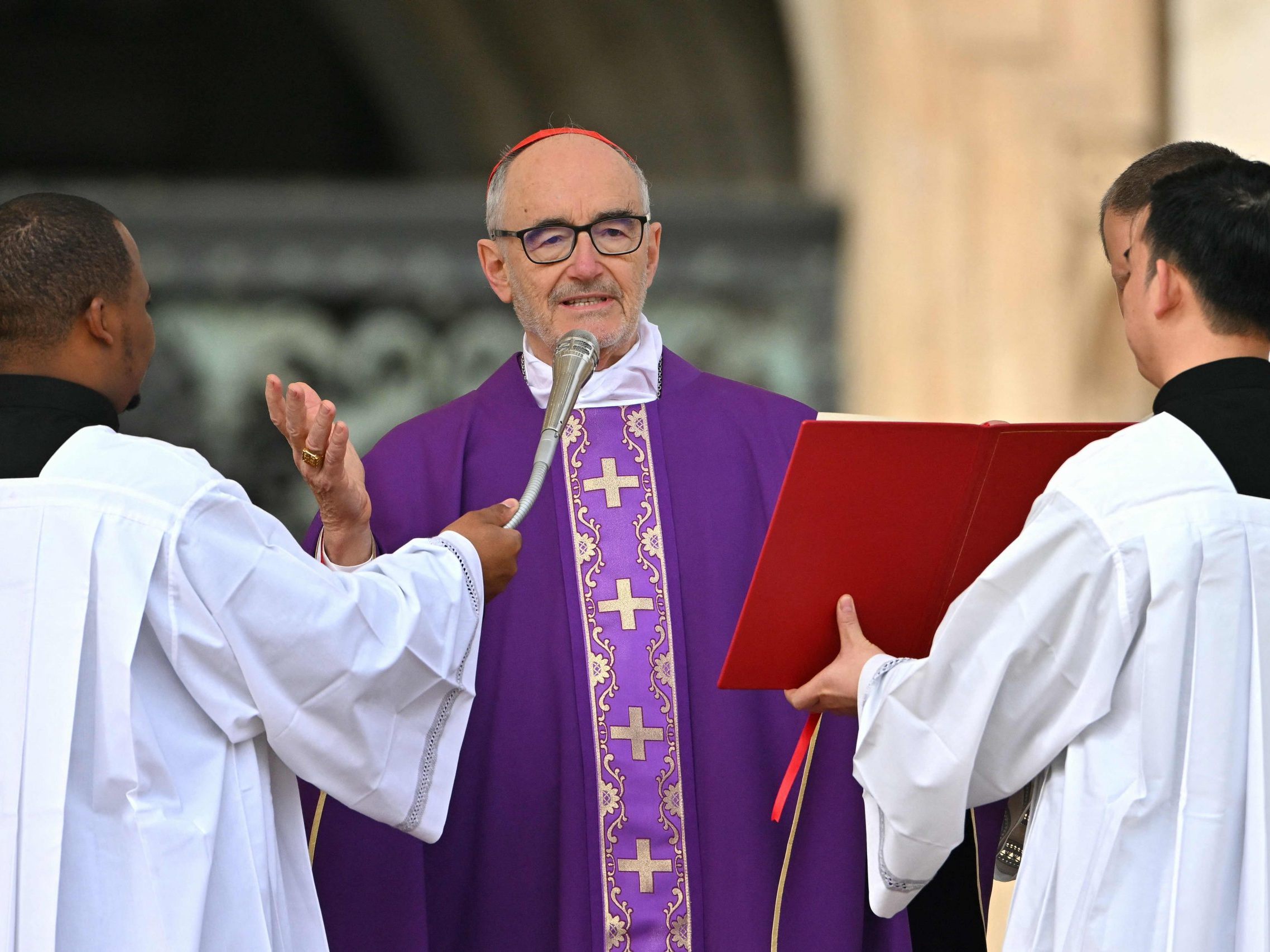Pope Election: Calculation Model Sees Michael Czerny in the Lead

In the 2013 calculation, the Argentine Cardinal Jorge Mario Bergoglio landed in third place, even though he was not considered a favorite. The model was based on two indicators of the influence of individual cardinals, their geographical distance from Rome, and their ideological orientation.
Mix of Extreme and Moderate Positions Makes Cardinals Influential
Those cardinals who took an extreme position in one dimension and a moderate one in the other were assumed to be particularly important for coalition formations in the conclave and thus also in demand. Bergoglio, who was elected Pope Francis at the time, was considered ideologically moderate but at the same time came "from the other end of the world," as he himself said.
For the 2005 conclave, the experts from the HUN-REN Center for Economic and Regional Sciences did not make any calculations, but the model could have held even then. After all, Joseph Ratzinger, a cardinal who lived at a medium geographical distance from Rome and represented a conservative extreme position ideologically, prevailed.
Calculations for the 2025 Papal Election Refined
For the current conclave, Kóczy and Sziklai have refined their model. Instead of the previously used Google search, a detailed determination of the ideological position of the cardinals (on topics such as same-sex couples, celibacy, or women's ordination) was carried out, and the second indicator was replaced by the gross domestic product per capita. This was to account for the fact that "Australia is considered part of the first world," according to Kóczy, unlike Africa, which is closer to Rome.
According to the preliminary calculations of the two Hungarian experts, the Czech-born Cardinal Czerny has the greatest influence in the conclave. There is a 13.2 percent probability that the Curia Cardinal will play a "decisive role" in the deliberations of the papal electors, meaning he will be necessary for forming a majority. He is followed by Cardinals Carlos Castillo Mattasoglio (Peru), Pablo Cezar Costa (Brazil), José Cobo Cano (Spain), and Francesco Montenegro (Italy) with 12.6 percent each, Mario Grech (Malta, 12 percent), John Dew (New Zealand, 10.8 percent), Leonardo Ulrich Steiner (Brazil, 10.2 percent), Juan José Omella (Spain, 9.2 percent), and Domenico Battaglia (Italy, 9.2 percent).
Other Top Candidates in the Papal Election
Just missing the top 10 is the US Cardinal Kevin Farrell (8.6 percent), who plays a central role as Camerlengo during the sede vacante. The German Cardinals Reinhard Marx (7.7 percent, 13th place), Gerhard Ludwig Müller (7.5 percent, 16th place), and Kurt Koch (7.4 percent, 17th place) have good chances. The highest-ranked African Cardinal is Dieudonné Nzapalainga from the Central African Republic in 14th place (7.6 percent), with the Congolese Fridolin Ambongo Besungu in 21st place (6.8 percent). The Hungarian Cardinal Peter Erdö only makes it to 65th place on the list (3.5 percent).
The composition of the papal election body has changed significantly over the twelve years because Francis has appointed many cardinals from outside Europe, according to Kóczy. The old continent now accounts for only a third of the papal electors, and there are many more liberal cardinals. These shifts have resulted in Erdö now being considered more of a conservative cardinal.
"It's an interesting experiment, but I wouldn't bet money on it now," says Kóczy in an APA interview. For game theorists, the papal election is interesting because the individual electors have great autonomy. In political bodies, this is not the case, as there is similar voting behavior due to party loyalties or geographical proximity. As a Catholic, he believes in the Holy Spirit, "but it works through people." Thus, the conclave is unlikely to produce a result that will be difficult to explain.
(APA/Red.)
This article has been automatically translated, read the original article here.





